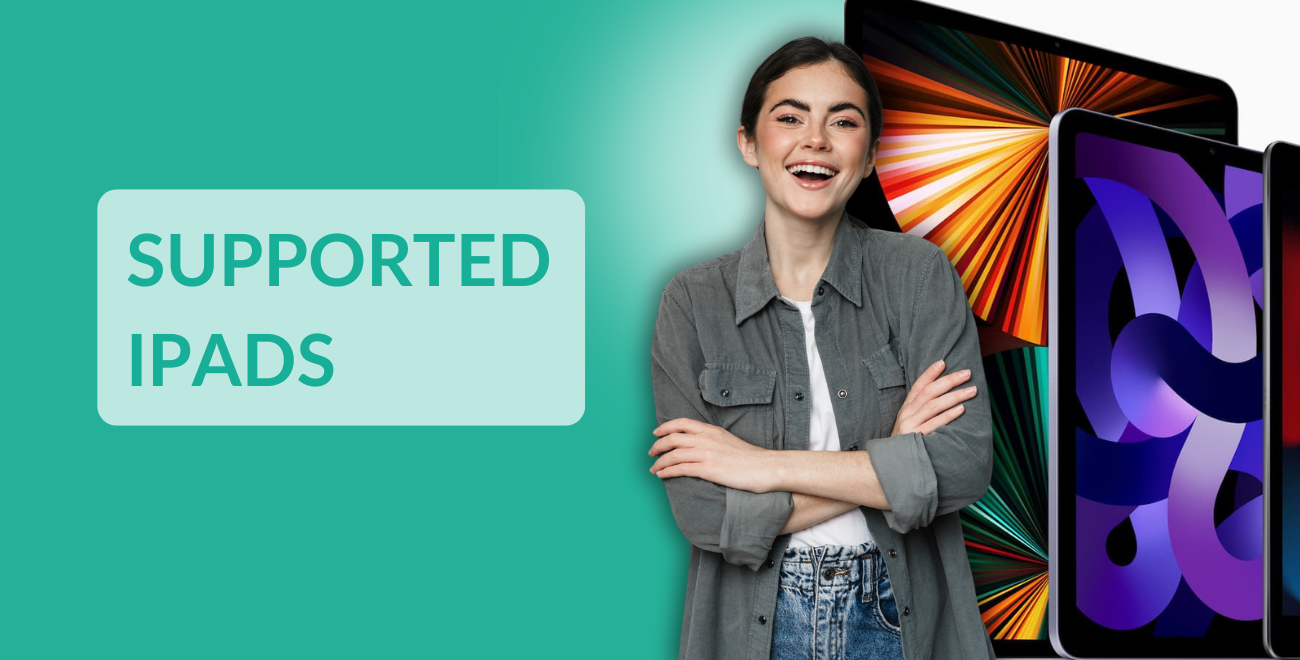03/10/2022

Which iPads are still supported?
Are you planning to purchase a refurbished iPad? Then you're making a great choice. However, besides considering all the specifications, product conditions, and prices, there are other factors you need to keep in mind. Every year, Apple releases a new operating system for Mac, iPhone, and iPad. But not all models are still supported by these new operating systems anymore, simply because the devices have become outdated.
iPadOS is slightly behind iOS. While iPhones received the update to add widgets to the home screen and organize apps in the App Library in 2020, the iPad only received these features with the release of iPadOS 15 in 2021.
Since October 25, 2021, the newest operating system for iPads has been available: iPadOS 15. This update can be installed on all devices that have an A9 chip or newer. There’s a good chance you don’t know which chip your iPad has, so we’ve made an overview below of which models are still supported.
In summary, the iPad 2017, iPad mini 4, iPad Air 2, and iPad Pro from 2015 and all subsequent generations are supported with iPadOS 15. Only the standard iPad seems to last slightly less than the average five years, but this doesn’t necessarily apply to the iPad 2017 and newer models.
Which iPads will no longer be supported next year with the release of what will likely be iPadOS 16 is still uncertain. It’s highly likely that it will be the iPad Air 2 (2014), iPad mini 4 (2015), iPad Pro 2015 9.7-inch and 12.9-inch, and the iPad 2017.
iPadOS vs iOS
The operating systems that Apple updates every year are probably familiar to you as macOS and iOS. Since 2019, iPadOS has been added to the mix. iOS and iPadOS are quite similar and share the same foundation. However, iPadOS is optimized, as the name suggests, for the iPad. For example, the dock is more similar to that of the Mac than the iPhone, and since then, you’ve been able to have multiple apps open on your screen at the same time. Although iPadOS was introduced not too long ago, the first version was named iPadOS 13 to align with the iOS version that was released in 2019, iOS 13.iPadOS is slightly behind iOS. While iPhones received the update to add widgets to the home screen and organize apps in the App Library in 2020, the iPad only received these features with the release of iPadOS 15 in 2021.
Support
Regarding support, you can expect that when you purchase an Apple product, it will be supported for about five years after the original release date. This means that when a new operating system is launched, there will always be a number of models on which this update is no longer available. Contrary to expectations, that wasn’t the case with the latest update.Since October 25, 2021, the newest operating system for iPads has been available: iPadOS 15. This update can be installed on all devices that have an A9 chip or newer. There’s a good chance you don’t know which chip your iPad has, so we’ve made an overview below of which models are still supported.
- iPad Air 2 (release date: October 22, 2014)
- iPad mini 4 (release date: September 9, 2015)
- iPad Pro 2015 12.9-inch 1st gen (release date: September 11, 2015)
- iPad Pro 2016 9.7-inch (release date: March 31, 2016)
- iPad 2017 5th gen (release date: March 21, 2017)
- iPad Pro 2017 10.5-inch (release date: June 5, 2017)
- iPad Pro 2017 12.9-inch 2nd gen (release date: June 5, 2017)
- iPad 2018 6th gen (release date: March 27, 2018)
- iPad Pro 2018 11-inch 1st gen (release date: October 30, 2018)
- iPad Pro 2018 12.9-inch 3rd gen (release date: October 30, 2018)
- iPad mini 5 (release date: March 18, 2019)
- iPad Air 3 (release date: March 18, 2019)
- iPad 2019 7th gen (release date: September 10, 2019)
- iPad 2020 8th gen (release date: September 15, 2020)
- iPad Pro 2020 11-inch 2nd gen (release date: March 18, 2020)
- iPad Pro 2020 12.9-inch 4th gen (release date: March 18, 2020)
- iPad Air 4 (release date: October 23, 2020)
- iPad Pro 2021 11-inch 3rd gen (release date: May 21, 2021)
- iPad Pro 2021 12.9-inch 5th gen (release date: May 21, 2021)
- iPad 2021 9th gen (release date: September 24, 2021)
- iPad mini 6 (release date: September 24, 2021)
In summary, the iPad 2017, iPad mini 4, iPad Air 2, and iPad Pro from 2015 and all subsequent generations are supported with iPadOS 15. Only the standard iPad seems to last slightly less than the average five years, but this doesn’t necessarily apply to the iPad 2017 and newer models.
Which iPads will no longer be supported next year with the release of what will likely be iPadOS 16 is still uncertain. It’s highly likely that it will be the iPad Air 2 (2014), iPad mini 4 (2015), iPad Pro 2015 9.7-inch and 12.9-inch, and the iPad 2017.
